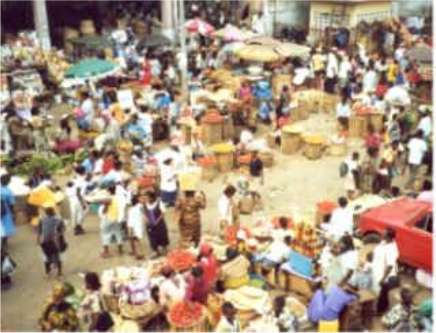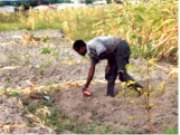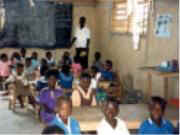|
Why Ghana?
Ghana:
from a political point of view
Outline specific
problems and dilemmas--case studies in the need for real human rights
changes....
Ghana
is
an independent African country south of the Sahara in West Africa. Before 6th March 1957
Ghana was under British Colonial Administration.
Today, the people of Ghana are under the 4th Republican multi-party
democratic constitution with an elected President for a four-year term
of office.
The
constitutions of the first, second and third Republics do not
unequivocally spell out Human Rights Education. However, the 1992
Fourth Republican
Constitution devotes Art. 456 which clearly stipulates the establishment
of the Commission on Human Rights and Administrative Justice (CHRAJ).
This commission is the national institution for the promotion of
fundamental human rights and freedom and administrative justice. It is
an independent institution having administrative and functional
autonomy. Even though it has not been possible to establish offices in
all district capitals in the country because of financial constraints,
it is hoped that in the near future Human Rights will be a
household word.
Ghana:
from a people oriented point of view
In
Ghana, as elsewhere in Africa, hostile economic and political
environments have resulted in the implementation (implementation
sounds like it might be coming from outside--is this the message)
of a package of
economic programmes, which limit the social and economic possibilities
and rights of our people of Ghana in general and Anyako and its environments
in particular. It limits especially our children to basic education and
health facilities as well as to the enjoyment of adequate care and
protection from their parents. The ugly spectacles of street children and
child labour are constant reminder of the regrettable violations
of the social and cultural rights of our young.
The
rate of unemployment and a reduction in real wages and salaries have
increased the burden that our women have to shoulder in trying to
support a living for the family (why women???). The growth of sprawling informal sector
settlements in our cities and towns is another evidence of how economic
policy has impoverished and dehumanised our young men and women. Indeed,
the family is currently at the crossroads as its stability and relevance
have come under the strain of prevailing economic and social exigencies.
Rampant soaring inflation and uncertain economic trends have whittled
away the already meager purchasing power of the aged; and most old
people no longer have the assurance of minimum social security.
Frustration hastens them on towards the inevitable end.
Conclusion???
|
![]() NEW!
nederlands
NEW!
nederlands


